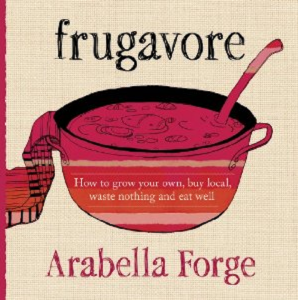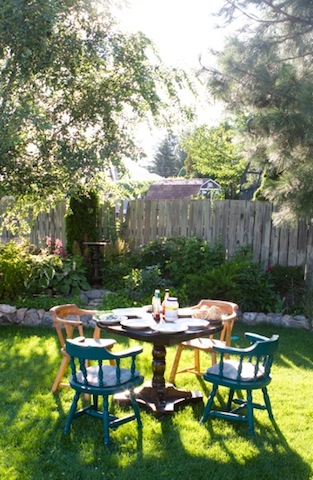Some might see the word “peasant” as a derogatory term? In fact, the word is derived from the fifteenth-century French word “paisant”, meaning a person from the local “pays”, or countryside. By definition a peasant is any person who lives or works close to the land? The peasant diet has been described as “simple and nourishing,” and their health was all the better for it.
Frugavore by Arabella Forge
A few months ago, I wrote a posting called What’s a Starving Student to do About Food? This posting was to help the student, or anyone on a tight budget, find ways to eat nourishing traditional foods. I had just received my copy of Wise Traditions, a quarterly journal produced by the Weston A Price Foundation. The journal had a review about a new book called Frugavore. This book is written by Arabella Forge, the Weston A Price Leader in Melbourne, Australia. Frugavore has not been released in Canada yet, but you can get it through amazon.com.
A few days ago, my sister Christine surprised me with a copy of Frugavore. She ordered the book from Australia. I enjoyed reading the book. It was fun to read about regional specialties like Kangaroo-Tail Soup and finding a man to urinate on your garden’s lemon tree. At the beginning of each recipe Arabella has helpful advice for the new Frugavore. Each section begins with a philosophical discussion on how to be a frugal with our food dollars while maintaining a high quality food supply for our families. Arabella discusses small scale gardening, household waste reduction, methods of food preparation, and safe household cleaning. If you have problems with the Nightshades you will need to make some substitutions. If you are on the Specific Carbohydrate Diet, some of the recipes will not be suitable. For those who can enjoy grains, legumes and beans, Arabella walks you through the process of traditional preparation for these peasant foods.
The first recipe I tried from the book was a success. Both of my girls, known for their dislike of squash, finished their bowls and asked for more. I have made some local changes to the recipe.
Pumpkin Soup
1/2 acorn squash, steamed and peeled
1 small sweet pumpkin, steamed and peeled
1T fat or butter
1tsp sea salt
1 large onion, chopped
2 medium carrots, chopped
1 clove garlic, minced
1-2tsp allspice, freshly ground
fresh parsley or chives, chopped
4-6c chicken stock or bone broth
In a large soup pot, saute the onions and salt in the fat until golden brown. Add the carrots and garlic near the end of the cooking. In another large pot, put about one inch of water in the bottom. Quarter the squash and steam until soft. Remove the squash from the pot and peel after the squash has cooled. Puree the squash with a food processor. Use the steaming water to thin out the squash, if needed. Add the sauted vegetables to the squash and puree until smooth. Return the mixture to the large soup pot and add enough broth to have a smooth soup.


